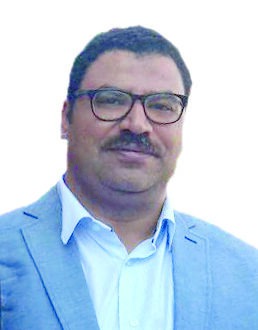During a recent visit to Cairo by Italian official, the term “Mattei Plan” was on everyone’s lips, yet it may still be unfamiliar to many.
Italy’s unveiling of the Mattei Plan is seen as a significant turning point in its strategic approach to Africa, signalling a renewed commitment to partnership and development across the continent. With a focus on collaboration and sustainable growth, this ambitious initiative not only reflects Italy’s evolving priorities but also can set a new blueprint for other European nations seeking to reshape their relations with the South Mediterranean.
The Mattei Plan goes beyond traditional aid models. It offers a €5 billion investment package aimed at fostering development across Africa in key areas like education, infrastructure, healthcare, and sustainable resource management. This comprehensive strategy addresses not just economic concerns but also the root causes of migration, a pressing issue for Italy.
Named after Enrico Mattei, founder of state-controlled oil and gas major Eni, the plan prioritises collaboration with nine African countries, with Egypt playing a pivotal role at the forefront of this endeavour.
During recent discussions in Cairo, Italian Minister Adolfo Urso underscored the importance of Egypt’s strategic partnership and highlighted the country’s integral role in the implementation of the Mattei Plan. Through partnerships spanning various sectors, from information technology to renewable energy, Italy is poised to leverage its expertise and resources to drive innovation and progress in Africa.
The significance of the Mattei Plan extends beyond Italy’s borders, offering a new paradigm for European engagement with the South Mediterranean. As Italy assumes the presidency of the Group of Seven (G7) nations in 2024, it has pledged to make Africa a central theme, signalling a collective commitment to advancing mutual interests and shared prosperity.
Central to the success of the Mattei Plan is its holistic approach and emphasis on partnership-building. By engaging with African countries and organisations through upstream dialogues and co-designed initiatives, Italy can ensure that the plan aligns with local needs and priorities. This collaborative attitude not only can enhance the effectiveness of interventions but also fosters sustainable development and long-term resilience and can create a win-win situation for both parties.
However, the Mattei Plan’s integration with other existing European initiatives, can fuel synergy and coherence in international co-operation. By leveraging complementary efforts and resources, Italy can maximise the impact of its interventions and catalyse positive change across the continent.
However, the success of the Mattei Plan hinges on its ability to deliver concrete results and secure adequate financial resources. As expectations run high, Italy must remain committed to a long-term perspective and prioritise sustained engagement with African partners. This entails not only fulfilling short-term objectives but also laying the groundwork for enduring co-operation and mutual benefit.
As Minister Urso embarks on further discussions in Kenya, the urgency and determination displayed underscore Italy’s commitment to realising the vision of the Mattei Plan.
The Mattei Plan has the potential to be a turning point in Africa-Europe relations. By prioritising partnership, development, and mutual benefit, Italy is forging a new path. The coming months will be crucial in determining if the plan delivers on its promise, but the initial steps are encouraging. If successful, the Mattei Plan could serve as a blueprint for a more prosperous and collaborative future between Europe and Africa.






Discussion about this post